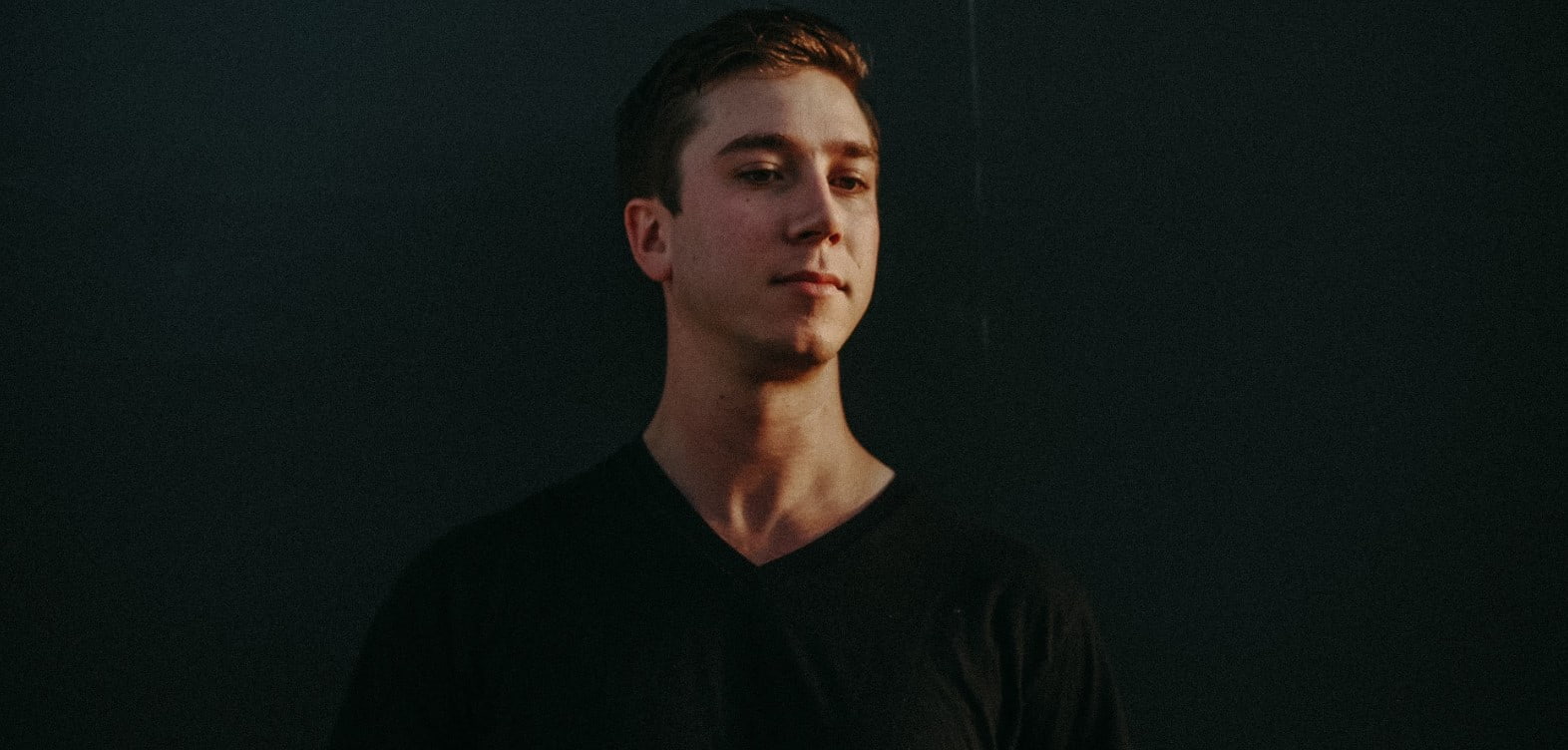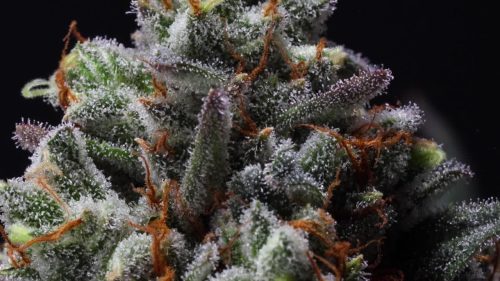ATTLAS has been making immense waves in the EDM community with his last several releases. In his time spent on the mau5trap label, he’s proven his rise to be imminent. The Canadian producer has been celebrating the success of his most recent album, Lavender God.
Recently I got the chance to Ask Jeff Hartford, known to many as ATTLAS. We talked about his new album, Lavender God, his experiences while being with mau5trap, and other pressing and relevant questions. Check out the transcript below.
The new album title “Lavender God” and the track of the same name is very unique. In some cultures, the lavender flower is meant to represent calmness, serenity, purity, as well as silence. Is that what you were trying to convey or is there a different meaning to the title and album?
ATTLAS: The title ‘Lavender God’ and most of the major concepts, and by extension confidence in those concepts, came to me during meditation. I’ve been asked a few times about the specifics of the word choices Lavender God, but the truth is that it came to me as if having a flashlight beam strike you. Invisible, purposeful, illuminating.
I’ve been seeking peace for a long time. I haven’t been able to successfully access it for periods as long as I would like to. So there’s some beautiful significance in Lavender coming to my life. The words you chose – calmness, serenity, purity, and silence – I aspire to those ideals physically, creatively, intellectually, spiritually.
Are there any songs on Lavender God that were especially difficult to produce, practically or emotionally? Is there a single song on it that brought you the most joy when finishing it?
ATTLAS: Some tracks come together very quickly in a single session and are largely the result of live performance and improvisation. November was one of those, as was “Lavender God.” (Originally it was titled ‘A
Time of Day.’ It was re-titled after the track that I intended to be Lavender God became too difficult technically to work on).
“More Than That” is, in my opinion, the track I’m the most proud of. It’s written as a suite of my newest and oldest ideas. They’re re-contextualized with more confidence and sense of scale than I’ve been able to pull off in the past. It’s very personal work to me. Additionally, I can put tracks Shatter and A Ray of Light in that group of pieces that for me were these big sprawling landscapes I managed to populate and curate with the right sense of narrative, emotion, and technical competence.
Lavender God features quite notable vocalists. They include, Lambert, MAYLYN, as well as Alisa Xayalith, the frontwoman of The Naked And Famous. How was it working with her? Were you a fan of hers before you two worked together?
ATTLAS: My favourite dive bar near my place in Toronto plays The Naked and Famous a ton, so it was humbling and a thrill to get a chance to work with a top-level professional like Alisa whose music I knew was both accessible and with considerable depth. We spent a day at her place in Silver Lake jamming on old demos, new demos, and trying out different passages and motifs live on pianos and guitars.
She’s a fast and purposeful writer, and by the time we were at the Spotify studios the next day to record vocal takes, we had shifted keys and rebuilt a beautiful track that started as a piano melody of mine in 2015. Her dog Ginger was loyal and helpful. She was sitting respectfully at our feet in the vocal both even – no barks made the final takes.
I think I have an idea as to why people thought you were deadmau5 from the time you were first signed to the label in 2015. You both seem to like using analog synths or similar synth plugins that sound analog. Are there any analog or modular that you’ve wanted to get your hands on and try out?
ATTLAS: A lot of that gear is pretty cost-prohibitive to me. I’ve tried to be hard on myself, squeezing the most I can out of the few tools I have here at home. That being said, there’s a Moog Audio location a fifteen-minute walk from my place, and it’s hard not to want to splurge and buy one of the great instruments.
As far as a ‘holy grail’ kind of synth, I’ve always had the Yamaha CS80 at the top of list. From the massive themes Vangelis and my personal favorite Boards of Canada wrote on it, it would be a draw. But my fascination with it is how ‘musical’ it’s rumored to be to play. I’ve never seen one in the ‘wild’, but am so curious about its keyboard and playability of the aftertouch and phrasing you can accomplish. Not to mention its incredibly rich and warm spread of sound.

In an interview (Veld Music Festival in 2017) you said that your name encompasses the “globe of music, and the music found only in certain cultures”. The term ‘atlas’, a “book of maps, of different cultures”, that was what you wanted to do, musically. Do you consider your stage persona, as well as your name, an ever-changing meaning in the same way we see the diversity in your music?
ATTLAS: I think in a lot of ways the ATTLAS name sets up pretty broad bookends of what I can aim myself at aurally, and stylistically. In a simple way, an ‘atlas’ covers geography – high points, low points, hot places, cold isolation. How can you not see the immediate translations to music? That sense of exploration, the journey being the real lesson – I think that’s how I approach things creatively as well. It’s less about a specific end result (play mainstage or hit a certain financial or popularity threshold) and more about what the story means as you criss-cross from tundra to jungle – stylistically I mean.
As a well respected and accomplished artist, what are some personal do’s and don’ts that you would want to share with an up and coming artist or a producer just starting their journey into this diverse culture of music?
ATTLAS: I appreciate being called well respected and accomplished because you don’t feel like that most days. I feel in a lot of ways that there’s the musician/writer side of me that loves and lives it passionately and honestly. Then there’s the part of me that feels like he’s constantly playing catch-up with how to sell the music, play the music, reach the people that are going to care about the project.
If we’re talking strictly the music, I’d advise any new producer to really identify why they care in the first place. There are acts that just want to be party acts, and that’s great because they can engineer a pathway to those gigs and those sounds. For me, it’s about what the writing means as a process. I’m trying to think of why I love the music I love, and a lot of it is because it hits that point in my halfway between heart and imagination. I feel something, and it lets my mind go to new places. My advice would be know what you’re trying to create and why, and then live it.
Second to deadmau5, you’ve been the longest signee and member of the mau5trap family, and have seen many talented artists come into the fold. You’ve also seen many diverse and unique events put on by mau5trap. Are there any notable experiences or moments during that time you’ve enjoyed?
ATTLAS: I actually didn’t know that statistic. That’s interesting eh? When I think back on it, it doesn’t feel like it was all the blink of an eye. I guess I’ve been kicking around for a bit. Funny enough a lot of my happiest mau5trap memories were in the first little bit.
I loved the rawness of the bus tour with Rezz and mau5. I loved the b2bs in cities I’ve never been to before. It was a very intense period in my life professionally and personally, but those stories and people from the first years mean so much to me. You want to grow and forge your own path and sound, but man I really felt taken care of and respected during that period.

You’ve produced alongside deadmau5, and have put your own spin on a few of his most known songs. Are there any notable, meaningful moments that you’ve had with him during that time, and your time as a part of mau5trap?
ATTLAS: Joel and I ripped around on ATVs through his backyard and saw the remnants of hundreds of years old walls crumbling and decaying under the forest floor on his grounds. It was a rush that connected a lot of disparate stories into one serendipitous circumstance. I made some of my closest friends as a result of mau5trap bringing me on. It’s taught me so much about myself, the world, and this thing called the music industry. It’s been a ton of ups and downs.
Are there any artists (part of the mau5trap family or otherwise) that you’d want music fans to look for in the future?
ATTLAS: These aren’t necessarily small, but djrum, Vril and Arve Henriksen. They are definitely ones I admire. Currently for their sense of control and discipline over their art, which tends to be sprawling, ambitious and textured. Works that really feel like places. Not necessarily all dance music, but craftsmanship and execution that is deep as a coal mine.
Lavender God was written listening to a ton of ambient records, lots of time outside in the dark and cold. That included the spiritual albums of Van Morrison (the period of his where the pieces are these long meandering works that somehow just connect and lift you up to ask the big questions). If I could contribute something like Tir Na Nog by Van Morrison to the music world I’d rest in peace.
Lastly, is there anything you’d like to add?
ATTLAS: Value Freedom.
Follow ATTLAS
Facebook | Twitter | Instagram | Soundcloud







